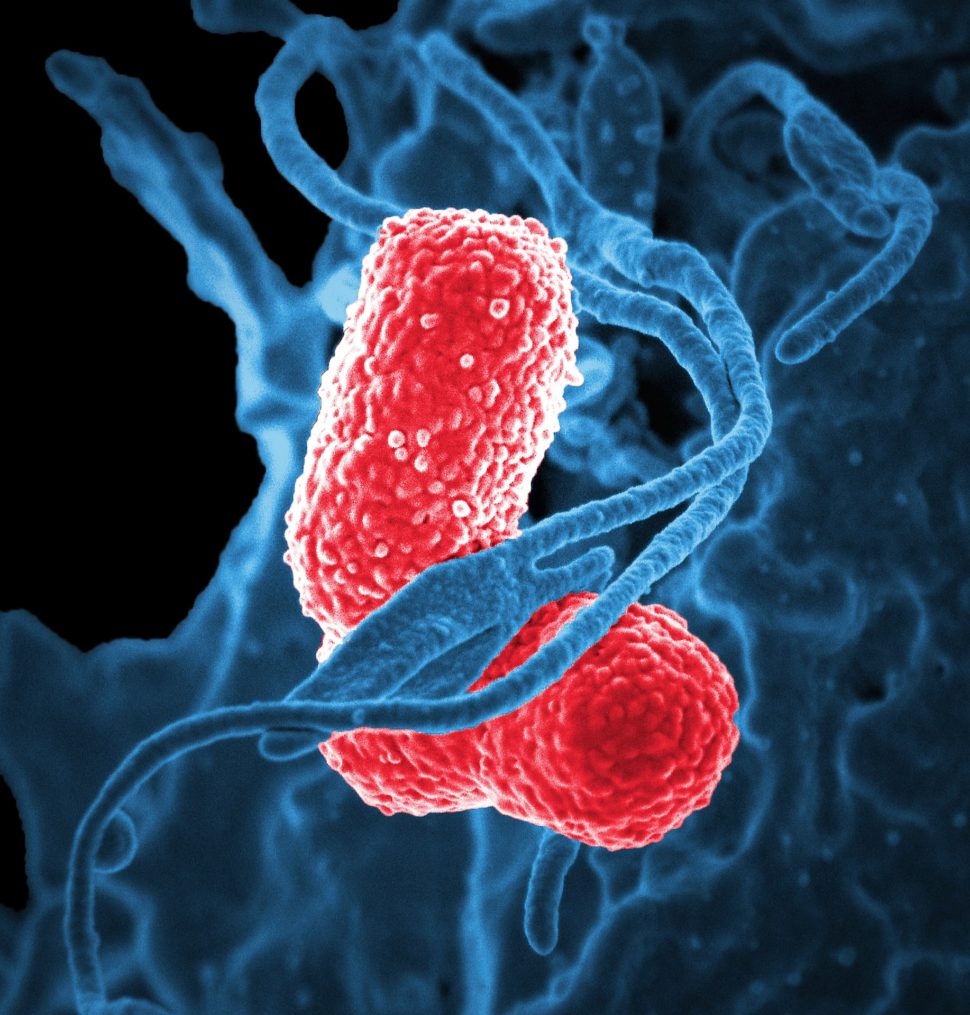Researchers at Harvard have found that a type of bacteria linked to colon cancer can spread to other body parts along with the tumor’s metastasizing cells.
Over the course of thousands of different studies, experiments, and programs, scientists have discerned most of the central reasons behind the cause of cancer within the human body.
Genetic defects are the source of a number of cancers, but only 5 to 10% of these mutations are of hereditary origin.
There are also substances known to be carcinogenic, and whose concentration and greater exposure may increase the risk of cancer.
Then, there are some infectious agents (viruses, bacteria or parasites) that have been identified as a high-risk factor for some types of cancer. Due to the majority of these infections being treatable, most cancers related to them can be avoided by appropriate prevention measures.
A new treatment for colorectal cancer might be in the way.Click To TweetFor example, cervical cancer, the second most common cancer among women in the world, is linked to Human Papilloma Viruses (HPVs). More than 150 different virus types have been cataloged under this name with many being treatable through vaccines, medication, or, in certain cases, surgery.
It’s estimated that over 1.9 million or one in six cancer cases that occur worldwide every year are caused by a viral, bacterial or parasitic infection.
Bacterial Persistence in Tumor Metastases: Case of Colorectal Cancer
Fusobacterium nucleatum is one of the many infectious agents that has been associated with human colorectal cancer.
However, a research team has found evidence that supports the hypothesis that Fusobacterium nucleatum and its associated microbiome, found in the primary tumor cells, travel with metastatic cells to other body parts.
Harvard University researchers, in collaboration with experts from the Vall d´Hebron Institute of Oncology (VHIO), describe their findings in a study published in the journal Science.
The team found that Fusobacterium nucleatum was observed traveling with human colorectal cancer primary cells to liver metastases.
Researchers also recorded that treating mice bearing colon cancer with the antibiotic metronidazole, shown to be effective against Fusobacteria, significantly reduced the bacteria load and halted the cancer proliferation.
Hope for new Human CRC Treatment?
“These observations suggest that this bacterium is more than a mere bystander or passenger of tumorigenesis, and not just a consequence of a favorable tumor microenvironment.” said VHIO’s Paolo Nuciforo, co-author of the study, “It could, in fact, be a driver of metastases. Selective antimicrobial therapy could therefore represent important weaponry for the treatment of patients with Fusobacterium-associated colorectal cancer.”
Treatment of mice bearing a xenograft with a reduced Fusobacterium load saw a reduction in cancer cells and overall tumor growth.
“These observations,” said authors of the study, “argue for further investigation of antimicrobial interventions as a potential treatment for patients with Fusobacterium-associated colorectal cancer.”



















Emulsifiers are in many processed foods. They are linked with chronic inflammation. When there is chronic inflammation in the gut, the tight junctions stay open for much longer than normal. This mistake is letting the wrong actors into the bloodstream. Why do we have rising rates of cancer and of auto-immune diseases ? I suspect the answer is right here : emulsifiers.